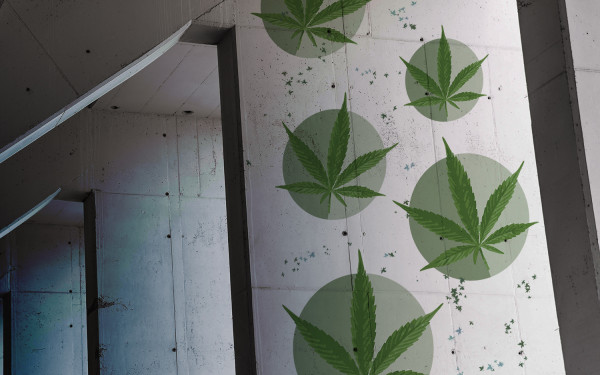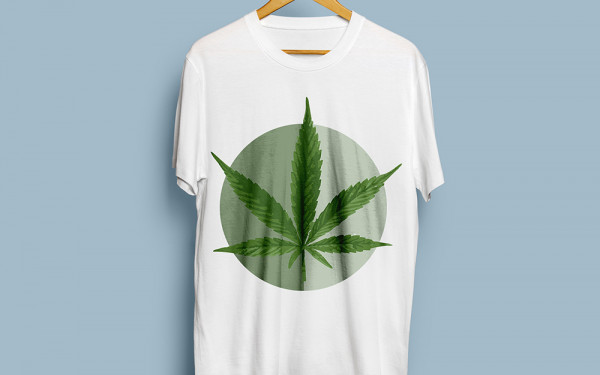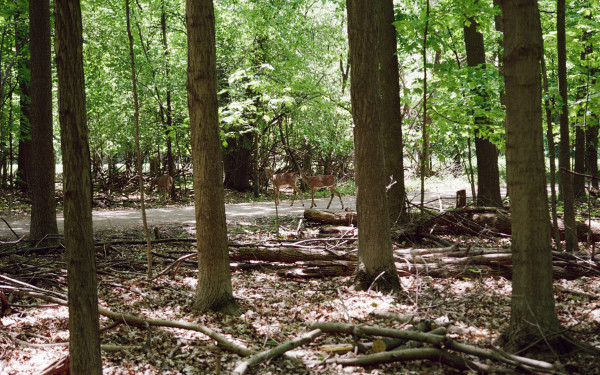Editorial: With Legalization Coming, We Should Be Questioning Who It Benefits
Legalization Benefits Higher Classes, While the Incarcerated Remain Imprisoned
The legalization of weed should provide a change for our society to provide affordable medicine, reduce stigma towards a drug that has various healing properties with a low addiction rate, as well as end incarcerations and charges on those who participate in the industry.
However, the federal government has chosen to enforce long prison times and hefty fines for those who do not sell legally, unequal to the laws regarding alcohol. Further, they have decided to leave the incarcerated by weed charges detained in prisons and keep those impacted by criminal charges, especially within the workforce, from having equal opportunity within our society.
The Link believes the legalization of marijuana should benefit those of all classes and exonerate previous charges and incarcerations.
Legalization is expected to be beneficial for the country, with reduction of stigma towards marijuana, more opportunities for research, more jobs, no further incarcerations or charges for recreational use, and revenue for the country through taxes.
However, with the legalization of recreational marijuana in Canada on Oct. 17, we are concerned by the further marginalization of Black and Indigenous communities, and high weed prices leading to inaccessibility.
As cannabis has not been federally decriminalized before legalization, those with weed-related criminal charges and who have been incarcerated as a result will not have their charges removed or be released. Canada has no immediate plans to issue an official apology to those incarcerated.
Though an apology is symbolic, it would help to reduce the stigma against marijuana consumption that is still very much alive despite the slow legal progress being made.
The federal government said they would only begin to even consider the matter of pardoning the 17,733 people in 2016 alone that were charged with possession of marijuana, when legalization comes into effect on the 17. Those selling weed without a licence may face up to 14 years in prison. Ontario has intended to add fines up to $1 million.
It should be noted that Black and Indigenous people are statistically overrepresented when it comes to marijuana related charges. Will this change with the fines that will come into effect when legalization does? How will this affect Black and Indigenous students, if caught consuming marijuana on campus?
A Vice News access to information request proved that single-charge possession arrests of Black and Indigenous people increased from 2015 to 2017. Trudeau’s Liberals have publically tried to present themselves as champions of nation-to-nation reconciliation—apparently not when it comes to arresting Indigenous people for possession at disproportionate rates.
The Montreal police were willing to make statistics available to Vice, but they were not willing to break down the arrests they made using race as a category. Ottawa will be used as the example, as the city in closest proximity to Montreal willing to release statistics pertaining to race.
In 2015, Black people comprised 6.3 per cent of Ottawa’s population and 22 per cent of marijuana possession charges. By 2017 there were 23 per cent of Black people with possession charges. Indigenous people compose 4.2 per cent of the population but in 2015 and 2016 were arrested for possession at a rate of 7 per cent. In 2017, the rate was at 5 per cent.
A part of the law called “illicit cannabis” pertains to weed that is either not grown legally or not bought from a provincially regulated shop. “Illicit cannabis” that is shared with, or sold to a minor, can result in a $15,000 fine, 18 months of prison for a summary offence and a maximum of 14 years in prison for an indictable offence.
However, selling alcohol to a minor can generate a fine of only up to $10,000 for most provinces.
And with the cannabis tax and GST being imposed on legal selling of weed, is it so accessible for everyone?
An analysis conducted by Deloitte, a consulting firm, predicts that illegal weed is priced at a national average $8.24 per gram. Ontario and the western provinces have the highest illegal price averages with $8.33 in Ontario and $8.36 in the West. However, Quebec is the province with the lowest illegal price, averaged at $7.53.
The federal government has made a proposal to add 10 per cent to the total price of legal weed, as well as an additional 13-15 per cent towards GST. This will result in an approximate 25 per cent price tag for legal weed when compared to what is available illegally.
For Quebecers, this will bring the price of weed up to an estimated $9.41 per gram, which may not be affordable for everyone, with particular concern given to those who use weed medicinally.
With the rates of opioid-related deaths and addictions rapidly growing in our country, weed is helpful alternative to curb the overprescription of highly addictive and fatal opioids that doctors have habitually overprescribed for many years.
The legalization movement is now generated to best fit those with no former imprisonment or fines, to aid those of a higher class. This is not how we wanted legalization to be.






_600_375_s_c1.png)
